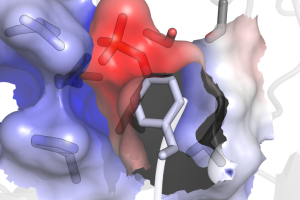
Approaching Tyrosine Phosphorylation as a Design Problem
The Naegle Lab seeks to understand the regulation and function of tyrosine phosphorylation in complex networks. We combine systems biology, computation, and experiments to test predict and test the function of tyrosine phosphorylation in proteins and protein networks.
We hope to tackle the outsized challenge of understanding the role of 46,000 phosphotyrosines in the human proteome, while developing molecular and computational tools that are open source and broadly applicable to other fields of molecular research.
Positions Available
Prospective graduate students, post-docs, lab specialists, and undergraduate researchers: email Dr. Naegle for more information about joining the lab.
SELECTED PUBLICATIONS
-
KSTAR: An algorithm to predict patient-specific kinase activities from phosphoproteomic data.
Kinase inhibitors as targeted therapies have played an important role in improving cancer outcomes. However, there are still considerable challenges, such as resistance, non-response, patient stratification, polypharmacology, and identifying combination therapy where understanding a tumor kinase activity profile could be transformative.
-
ProteomeScout: a repository and analysis resource for post-translational modifications and proteins.
ProteomeScout (https://proteomescout.wustl.edu) is a resource for the study of proteins and their post-translational modifications (PTMs) consisting of a database of PTMs, a repository for experimental data, an analysis suite for PTM experiments, and a tool for visualizing the relationships between complex protein annotations.
-
Ensemble clustering of phosphoproteomic data identifies differences in protein interactions and cell-cell junction integrity of HER2-overexpressing cells.
Overexpression of HER2, a receptor tyrosine kinase of the ERBB family, in breast cancer is related to increased cancer progression and aggressiveness.


